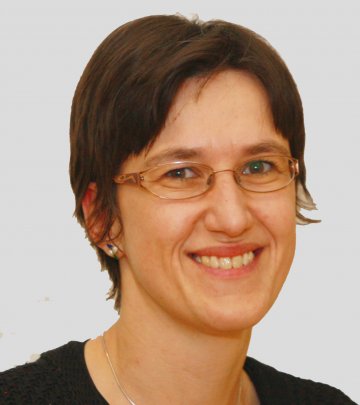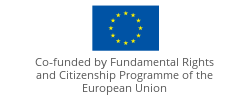
Microsite Improving JJS
Main activities
- Creation of a training toolkit and a manual drafted by a group of experts on juvenile justice and children’s rights. A focus-group will also be organised with children in conflict with the law in order to identify their needs and create case-management stories (with a particular focus on examples concerning the right to be heard). The training toolkit is destined for trainers, and the manual will be disseminated during national workshops and will be translated in different languages. Both the training toolkit and the manual will include the main concepts in juvenile justice and will consist of a selection of promising practices that will be identified as possible models of action.
- Training sessions in Brussels for project partners on child-friendly justice. This sessions will consist of “training of trainers” concerning techniques (advocacy, capacity-building, etc.) to implement the toolkit and the manual at national level.
- National workshops organised by project partners for practitioners and professionals dealing with children in residential care or detention. These workshops will focus on the priorities developed in the IJJO White paper (prevention, diversion, community sanctions and detention as last resort) respecting the principles of interdisciplinarity and child participation.
- Evaluation of the training sessions and adaptation of the toolkit and the manual on an online course through the IJJO e-learning Platform (International School of Juvenile Justice).
- Final conference in Brussels to present the results of the project.
Related interviews
Department of Child Law, Leiden University
Department of Child Law, Leiden University

Netherlands

Interviewees from the Department of Child Law, in the context of the 'Improving Juvenile Justice Systems in Europe' project:
Prof. Dr. Ton Liefaard (right of the picture) - Full Professor and UNICEF Chair in Children's Rights at Leiden University.
Dr. Stephanie Rap (centre of the picture) - Assistant Professor.
Apollonia Bolscher, LL.M. (left of the picture) - Researcher/Junior Lecturer.
The Department of Child Law at Leiden University is a knowledge centre dedicated to academic research and education for both students and professionals in the field of child law and children’s rights. A wide range of areas is covered including children’s rights, child protection, juvenile justice and family law. The Department conducts scientific research projects for governments, international organisations, including UNICEF, the Council of Europe, the IJJO, and different national institutions, including the Dutch children’s ombudsperson.
The Department of Child Law offers the only LL.M programme on Dutch Child Law in the Netherlands. In addition, it offers the international programme Master of Laws: Advanced Studies in International Children’s Rights. Moreover, the department is responsible for various courses in the Bachelor’s programme of Leiden Law School and post-academic training programmes for professionals in the Netherlands and abroad.
The Department also hosts the yearly international summer school ‘Frontiers of Children’s Rights’.
Kate Moffett, Practice Manager at Include Youth
Kate Moffett, Practice Manager at Include Youth

United Kingdom

Kate Moffett, Practice Manager at Include Youth organisation in Northern Ireland. She joined Include Youth in 2013 and is highly experienced in the area of youth participation, particularly with young people who face significant barriers to engaging. She has 12 years’ experience of working with young people in the justice system facing the most challenging barriers to participation and to having ‘a voice’ within society.
Currently, Ms Moffet manages the development and evaluation of practices, including the setting of practice standards. She is the Designated Safeguarding Officer at Include Youth, and is therefore responsible for safeguarding policies and procedures. She ensures that participation of young people is embedded throughout Include Youth and that young people have a say in decision-making and at management level. As well as this, Ms Moffet is an internal verifier for all OCN NI (Open College Network, Northern Ireland) qualifications at Include Youth, and co-delivers rights training to young people and 3rd sector organisations.
Sabine Mandl, senior researcher at the Ludwig Boltzmann Institute
Sabine Mandl, senior researcher at the Ludwig Boltzmann Institute

Austria

Sabine Mandl is a senior researcher at the Ludwig Boltzmann Institute of Human Rights (BIM), Vienna, working in the field of children’s and women’s rights with special emphasis on “access to justice” and “violence”.
She studied Political Science, Journalism and Communication Science and holds a Trainer Certificate for Adult Education. At the BIM, she is currently responsible for the EU funded project “Improving Juvenile Justice Systems in Europe – Training for Professionals”, which is led by IJJO (International Juvenile Justice Observatory).
From 2013 to 2015 she was the coordinator of the EU-Daphne project on “Access to specialized victim support services for women with disabilities who have experienced violence”, carried out by four European countries – Austria, Germany, United Kingdom and Iceland.
Additionally, she has been engaged in several projects focussed on, for example, the “integration of refugee and asylum seeking children in the educational system in Europe”, as well as “children’s view on engaging in European and international decision-making”.
Apart from her work at the BIM, she has been a lecturer at the University of Vienna since 2002. Working within the faculty of history and political science, she lectures on women’s rights, media and politics, the political system and qualitative empirical methods.
